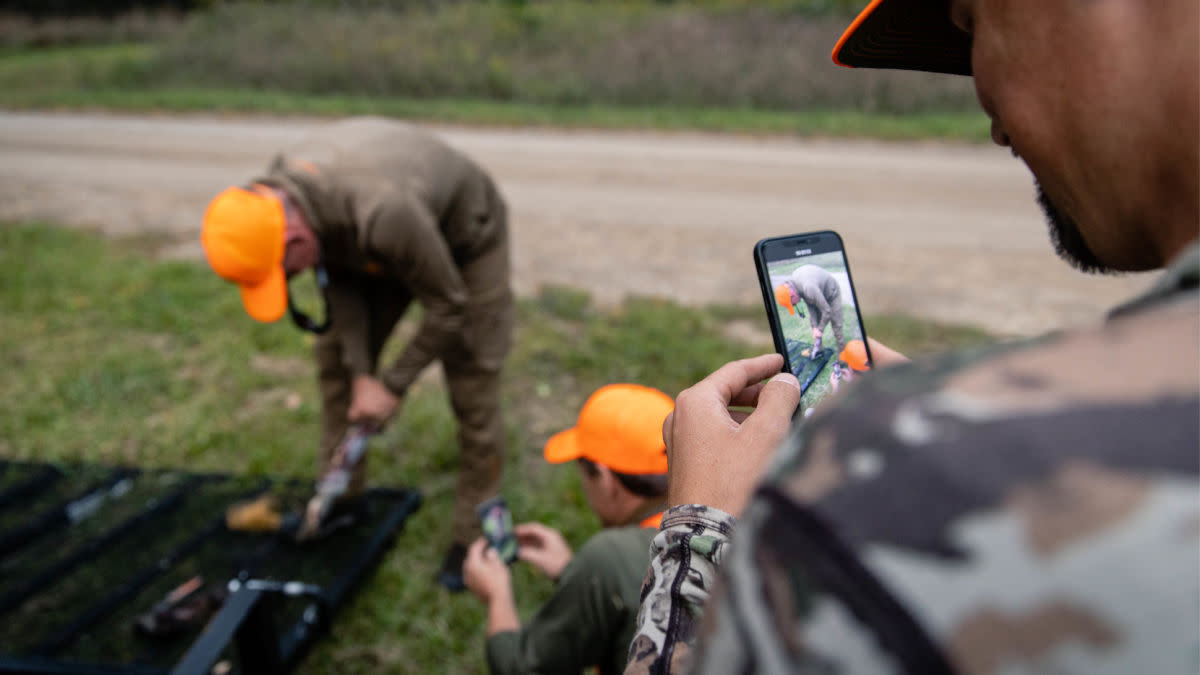
In our new series, Ask a Warden, we’ll be interviewing officers from across the country to learn about their role in protecting our game, fish, and other resources. In this edition, we asked officers from Alaska, Kentucky, and Wisconsin about the how Facebook and Instagram factor into modern wildlife management.
As a writer, social media has totally changed my job. For instance, you probably came to this article through MeatEater’s page on Facebook, Instagram, or Twitter.
Social media platforms have become so ubiquitous that even people who spend most of their time in the field, like conservation officers, are using them. As most wardens put it to me, social media is simultaneously a useful tool and a pain in the ass. Here’s how likes and hashtags have altered their responsibilities.
Lieutenant Matt Dobson | Alaska Department of Fish & Game
“Social media has been both good and bad for game wardens. As a department, we’re able to get our message out to a larger audience in a quicker fashion and really target specific user groups such as waterfowl hunters and deer hunters. However, that same media platform can be used against wardens, because poachers are able to communicate quicker about the activity and location of enforcement officers. It doesn’t take long for pictures of unmarked enforcement vehicles to find their way onto the social media.
“Any good game warden will also make himself (or younger subordinates) knowledgeable in searching social media for illegal activity. A social media case in my region that immediately comes to mind is one in which a non-resident posted several photos of him posing with three illegally-taken king crab. The season was closed, non-residents are not entitled to harvest king crab, and the bag limit in that area was two crabs. Our office received several calls from the community who had observed the post, and we quickly contacted the violator and charged him. You have to love a poacher who makes our job easy like that.”
Lieutenant Robin Barnhardt | Wisconsin Department of Natural Resources
“When social media first became popular around 10 years ago, our violation hotline received many calls from concerned citizens who wanted to report potential violations based on things they’d seen online. Conservation wardens investigated those complaints and made a number of arrests and/or issued citations. The violators wised up rapidly, and they don’t post about their illegal activities as often anymore. Social media posts still generate reports to our tip line, but not nearly in the volume they once did.”
Lieutenant Greg Watts | Kentucky Department of Fish & Wildlife
“Social media has changed the job of wardens in many ways, some good and some bad. The good: it makes it easier to access officers and agencies, with many having social media pages of their own. It allows officers to have a two-way communication with people that didn’t exist at the beginning of my career. Over the years, I’ve received many messages and pictures through social media and have made some better cases through it.
“The bad: there’s a lot of misinformation and rumors that can quickly spread through social media. For example, I’ve seen the same mountain lion pictures get circulated over and over regarding a cougar in Kentucky. Also, folks feel that they should get immediate answers to posts on social media. If they don’t immediately get a response, they feel like no one cares. I always need to explain that it just takes time to answer everything and we can’t always monitor social media.”




Conversation